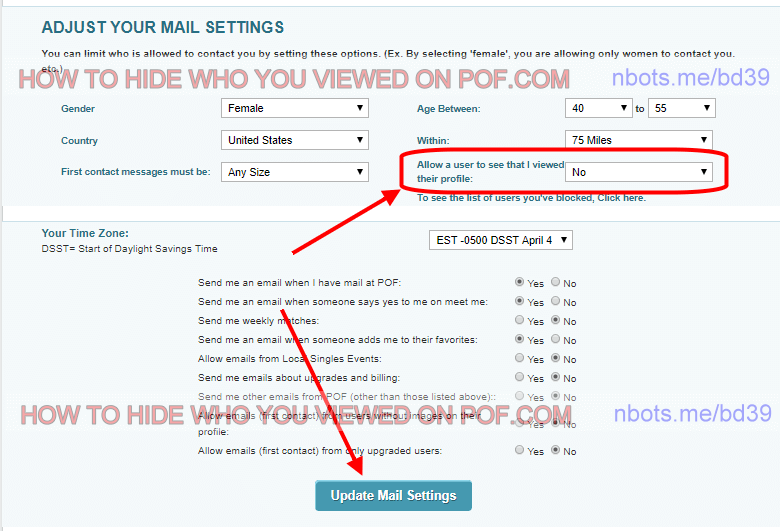Pof No
Posted By admin On 01/06/22- Our most popular feature, Meet Me, allows you to swipe on users near you and find more dates.
- Plenty of Fish or POF is a Canadian dating website that is also popular in different countries including the USA, Canada, UK, Australia, etc. Over the years, POF has gained the reputation of being one of the top dating platforms by helping millions of people find dates online.
- There are plenty of people eager to make new connections on Plenty of Fish.
Pofno 1 point 2 points 3 points 6 months ago I feel you on this! I’m a size 14/16 and around the holidays usually an 18 so it just looked like I gained 5-10 lbs from eating too much stuffing.

(Mfg by Pakistani Ordnance Factory (POF) in 1961)
(Click PIC to Enlarge)
(Click PIC to Enlarge)


Rifling & Twist: ............. 5 Groove, Enfield, Left Hand
Barrel Length: .............. 25.2 in. (640mm)
Overall Length: ............ 44.5 in. (1130mm)
Weight: ....................... 9 lb. (4.1kg)
Magazine Capacity: ...... 10 rounds
Qty Mfg: ...................... Approx. 35,000 produced 1953-1965
Sources: .... The Lee-Enfield Story by Ian Skennerton (1993) - ISBN: 185367138X,
The Lee Enfield by Ian Skennerton (2007) - ISBN: 9780949749826,
India's Enfields, 4th Ed. (2007) by LtCol Robert Edwards ISBN: 0-9701237-0-1.
1961 POF-made No.4 Mk2
(25 picture virtual tour)
Note: Pics of rifle provided courtesy of Milsurps.com moderator Claven2.
In early 1947, the United Kingdom announced the end of British rule in India after decades of pleas by the populace for independence. In June 1947, the leaders of British India agreed to the proposed terms of transfer of power. As a result, the modern state of Pakistan was established on 14 August 1947 from the two Muslim-majority wings in the eastern and northwestern regions of the former British India. The resultant division of the provinces of Punjab and Bengal sparked riots across India and Pakistan while millions of Muslims moved to Pakistan and millions of Hindus and Sikhs moved to India. This political unrest ultimately led to the First Kashmir War in 1948 and a long series of conflicts between India and Pakistan have ensued ever since, usually centred upon the disputed Kashmir region.
From 1947 to 1956, Pakistan was a Dominion in the Commonwealth of Nations. As such, it qualified for and received military assistance from the United Kingdom. Since the majority of the Indian Army had been populated by Hindus and Sikhs, the new Muslim state was left with a small and under-equipped portion of what had been a large commonwealth force. A request was made to the UK to help in the arming of the Pakistani Army.
The Pakistani Ordnance Factory at Wah Cantt received the machinery from ROF Fazakerley in the UK and the necessary tools and gauges to produce the No.4 rifle. Some evidence exists that POF may have produced some No.4MkI rifles, but the very great majority seem to have been No.4 Mk2 rifles. Some reports exist that some of the BSA-Shirley tooling also went to Pakistan, which could explain the MkI components.
The No.4 rifles produced by POF are, in nearly all respects, identical to late Fazakerley No.4 Mk2 production. The few exceptions are in the markings and the choice of stock wood. In the late 1940's the British ordnance factories had realized that walnut was in short supply and both expensive and unnecessary in the production of the No.4 rifle. They subsequently switched to using primarily beechwood furniture which, while not as good as walnut in terms of strength to weight ratio, was more than adequate for the 2-piece stock design of the Enfield and was both cheaper and more readily available. POF, on the other hand, had virtually no access to beechwood and had easy access to circasian walnut. As such, all POF made No.4 rifles left the factory with circasian walnut furniture - though this was not necessarily retained when a rifle was refurbished or repaired as a good many British-made rifles were also in their military stores system.
In terms of markings, the rifle is identified on the side wall where they are pantographed similarly to a late-production Fazakerley No.4 rifle. The first line will state the model (e.g. No.4.MK.2) and the second line the date of manufacture, factory and serial number (e.g. 61/P.O.F./C12345). Most parts are proofed with either a circle with a 'P' inside it, or with a capital letter 'P' with the year of manufacture of the part underneath (e.g. P over 61).
The issue bayonet was, in all respects, identical to a British produced No.9Mk1 blade socket bayonet. The difference being the POF manufacture markings.
In 1967 the Pakistani Army adopted the G3 rifle and the No.4 rifles in service began to be phased out over time. The majority of Army units, however, were still armed with the No.4 rifle, many of them made at POF, when the 3rd Indo-Pak War of 1971 broke out.
Collector's Comments and Feedback:
 1.The majority (if not all) examples of the POF made No.4 rifles we see in the west were captured from Pakistan by Indian forces during the 3rd Indo-Pak War of 1971. These rifles later made it into collectors' hands when they arrived on surplus markets mixed with British, Canadian and US-made No.4 rifles in the 1990's and again in the 2007-2009 timeframe. As such, some rifles will show use by the Indian Army who viewed these rifles as no different than any other No.4 rifle. As such, they were widely issued to Indian units, bear indian unit markings, and often will show signs of the odd Indian FTR at one time or another.
1.The majority (if not all) examples of the POF made No.4 rifles we see in the west were captured from Pakistan by Indian forces during the 3rd Indo-Pak War of 1971. These rifles later made it into collectors' hands when they arrived on surplus markets mixed with British, Canadian and US-made No.4 rifles in the 1990's and again in the 2007-2009 timeframe. As such, some rifles will show use by the Indian Army who viewed these rifles as no different than any other No.4 rifle. As such, they were widely issued to Indian units, bear indian unit markings, and often will show signs of the odd Indian FTR at one time or another.The depicted rifle is made up entirely of POF-made parts, though it did come to Canada by way of imports from India, meaning this is a gun captured from Pakistan in 1971 as is typical. While it was, at first, thought that the reinforcement screw (sometimes referred to as 'Ishy Screw) through the forestock was done in India, a large import to the US in 2009 of unused surplus POF-made circasian walnut stock sets directly from Pakistan showed that about 50% of the stocks had these screws installed, indicating it was also common practise in Pakistan. The fact that unused stock sets were so modified may indicate that production after a certain year may have specified the reinforcing screw as a standard feature.
As of the time of writing, it does not appear that Pakistan has released stockpiles of No.4 Mk2 POF-made rifles to the surplus market. They may either have been consumed in service (unlikely), destroyed, or most likely are still in war reserve and in service with auxiliary units or the paramilitary. This, of course, points to the relative rarity of these rifles and they have a very coveted place in any thorough collection of Enfield rifles............ (Feedback by 'Claven2')
PRESS RELEASE: SOUTH SAN FRANCISCO, Calif.–Plenty, the flavor-first vertical farming company with a mission to improve the lives of people, plants, and the planet, today announced its #1 ranking on the esteemed Forward Fooding 2020 FoodTech 500.

“The world is in need of an agricultural revolution, and there are many exciting areas where innovators are changing the future of food. At Plenty, we’re focused on using our proprietary, scalable vertical farming technology to deliver the freshest, most favorable produce year round, while preserving our most precious resources.”
“It is an honor to be included on the FoodTech 500 and we are thrilled to be ranked first,” said Nate Storey, co-founder and CSO of Plenty. “The world is in need of an agricultural revolution, and there are many exciting areas where innovators are changing the future of food. At Plenty, we’re focused on using our proprietary, scalable vertical farming technology to deliver the freshest, most favorable produce year round, while preserving our most precious resources.”
Plenty grows pesticide-free, non-GMO produce that tastes like it was fresh-picked from the garden because it was. The company ships from its farm to local stores every day. The farm’s controlled environment means the company can grow leafy greens year-round, regardless of season. Plenty’s leafy greens are so clean, there is no need to wash because there is nothing to wash away – no bleaches, chemicals, soil or pesticides. The company wants the first person to touch their produce to be the consumer opening the package in their kitchen. Plenty plants are cultivated in an optimum growing environment, reaching peak flavors and nutrient value year-round, across every harvest.
The world is running out of usable land for growing crops and the global water supply is under severe threat of depletion. Plenty was founded on the need to create a more sustainable way to grow food using less land and water. Plenty yields hundreds of acres of crops in a building the size of a big box retailer, without cutting down a single tree, and using a fraction of the water required in the field. Its San Francisco-based farm uses 100% renewable energy, and its greens are stored in 100% recyclable packaging and shipped locally to minimize the transportation footprint. Plenty’s data analytics and machine learning capabilities deliver 200 years’ worth of data each year, helping to quickly iterate and improve farm yield, quality and efficiency.
“The FoodTech 500 was created to shine a spotlight on the leading global innovators across the AgriFoodTech ecosystem, from farm to fork, who are making impactful solutions to better our food system,” said Alessio D’Antino, Forward Fooding founder and CEO. “This year’s list focused on understanding the driving factors behind the leading companies’ success and innovation, and we were thrilled to learn more about the top industry players, like Plenty, that are transforming our food system.”
The list represents 38 technology domains within the AgriFood space, including the broad categories of alternative proteins, farm management and precision farming, and vertical/indoor farming. The full ranking and more data about the 2020’s FoodTech 500 and its methodology can be found here.
About ForwardFooding
Forward Fooding is the world’s first collaborative platform for the food & beverage industry via FoodTech Data Intelligence and corporate-startup collaboration. Data services include The FoodTech Data Navigator data subscription service and facilitating corporate-startup collaboration through bespoke innovation programs and FoodTech consultancy.
To learn more visit: www.ForwardFooding.com
About Plenty
Pof Not Updating Location
Plenty is an American farming technology company that frees agriculture from the constraints of land, weather, seasons, time, distance, pests, natural disasters, and climate. The company’s plant scientists, engineers and farmers have developed its indoor vertical farming technology to grow nutrient-rich and pesticide-free plants with extraordinary flavor. The Plenty platform is designed to grow multiple crops in a building the size of a retail box store, yielding hundreds of acres using a fraction of the water and other precious resources. Plenty’s flagship farm and headquarters are located in South San Francisco, and the company operates the largest of its kind Research and Development farm in Laramie, Wyoming. Plenty is currently building the world’s highest-output, vertical, indoor farm in Compton, California.